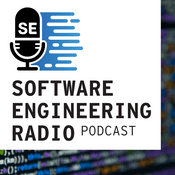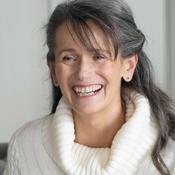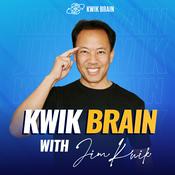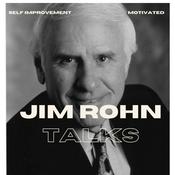Software Engineering Radio - the podcast for professional software developers
[email protected] (SE-Radio Team)

Último episódio
713 episódios
- Jens Gustedt, author of Modern C, senior scientist at the French National Institute for Computer Science and Control (INRIA), deputy director of the ICube lab, and former co-editor of the ISO C standard, speaks with SE Radio host Gavin Henry about the past 5 years in C, C2Y, and C23. They discuss what has happened in the C world since we last spoke 5 years ago, including how the latest C standard is going and what to expect. Jens discusses how the latest changes in the Modern C book apply to you, how a C transition header can help you get up to C23 if you're not there already, and presents a comprehensive approach for program failure. This episode explores C2Y, C23, bit-precise types, stdckdint.h, stdbit.h, 128 bit types, enumeration types, nullptr, Syntactic annotations, auto and typeof keywords, if let, as well as what's being added and removed in C2Y (possibly called "C28"), and Gustedt's four categories of program failure.
Brought to you by IEEE Computer Society and IEEE Software magazine. - In this episode, Subhajit Paul joins SE Radio host Kanchan Shringi to discuss how enterprise resource planning (ERP) systems work in practice and where machine learning and generative AI are beginning to fit into real-world ERP environments.
Subhajit grounds the conversation in ERP fundamentals, explaining core business flows such as order-to-cash, procure-to-pay, and plan-to-produce, and why ERP systems are central to running large enterprises. He then walks through the realities of ERP implementation, sharing examples of both successful and failed projects and highlighting common challenges around testing, process coverage, integrations, and change management.
The discussion also explores how AI is being applied in ERP today, including practical ML use cases such as inventory optimization and anomaly detection, as well as emerging generative AI and agent-based approaches.
Brought to you by IEEE Computer Society and IEEE Software magazine. SE Radio 706: Yechezkel "Chez" Rabinovich on Observability Tool Migration Techniques
04/2/2026 | 39minYechezkel "Chez" Rabinovich, CTO and co-founder at Groundcover, joins SE Radio host Brijesh Ammanath to discuss the key challenges in migrating observability toolsets. The episode starts with a look at why customers might seek to migrate their existing Observability stack, and then Chez explains some approaches and techniques for doing so. The discussion turns to OpenTelemetry, including what it is and how Groundcover helps with the migration of dashboards, monitors, pipelines, and integrations that are proprietary to vendor products. Chez describes methods for validating a successful migration, as well as metrics and signals that engineering teams can use to assess the migration health.
Brought to you by IEEE Computer Society and IEEE Software magazine.- Murat Erder, CTO for Financial Services at Valtech in Europe, and Eoin Woods, independent consultant in the field of software architecture, join host Giovanni Asproni to talk about Continuous Architecture—an approach to software design where architectural decisions are made and refined continuously throughout the lifecycle of a system, instead of up front in a big design phase. The show starts with a definition of Continuous Architecture and a description of the six principles underpinning it. Following that is an explanation of the main reasons and advantages of this approach, which finishes with some hints on how to get started using it. During the conversation, they explore several key points, including how to empower teams to take architectural decisions and recording those decisions; using feedback loops to refine the architecture; the role of software architects and architectural governance; the importance of focusing on quality requirements; and the impact of artificial intelligence on the field.
Brought to you by IEEE Computer Society and IEEE Software magazine. - Sriram Panyam returns to the show to discuss the system design interview (SDI) with host Robert Blumen. This challenging part of the hiring process is included in the interview loop for many jobs across tech, including management and for all levels from entry to senior. The conversation starts with a look at what the SDI is, who will face it, and how critical this interview is for hiring and leveling. Sriram shares some common system design questions and what the interviewers are generally looking for, including stated versus unstated requirements and ambiguity in the questions. He offers recommendations on how candidates should disambiguate their designs and manage their time. He shares some personal stories of interview failures and successes, and even discusses some mistakes that interviewers make.
Brought to you by IEEE Computer Society and IEEE Software magazine.
Mais podcasts de Ensino
Podcasts em tendência em Ensino
Sobre Software Engineering Radio - the podcast for professional software developers
Software Engineering Radio is a podcast targeted at the professional software developer. The goal is to be a lasting educational resource, not a newscast. SE Radio covers all topics software engineering. Episodes are either tutorials on a specific topic, or an interview with a well-known character from the software engineering world. All SE Radio episodes are original content — we do not record conferences or talks given in other venues. SE Radio is brought to you by the IEEE Computer Society and IEEE Software magazine.
Sítio Web de podcastOuve Software Engineering Radio - the podcast for professional software developers, Learning English Conversations e muitos outros podcasts de todo o mundo com a aplicação radio.pt

Obtenha a aplicação gratuita radio.pt
- Guardar rádios e podcasts favoritos
- Transmissão via Wi-Fi ou Bluetooth
- Carplay & Android Audo compatìvel
- E ainda mais funções
Obtenha a aplicação gratuita radio.pt
- Guardar rádios e podcasts favoritos
- Transmissão via Wi-Fi ou Bluetooth
- Carplay & Android Audo compatìvel
- E ainda mais funções


Software Engineering Radio - the podcast for professional software developers
Leia o código,
descarregue a aplicação,
ouça.
descarregue a aplicação,
ouça.



































